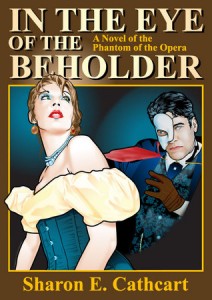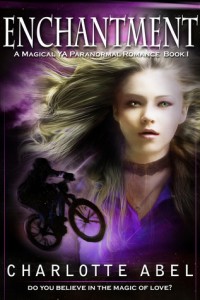
Photo © 2008 Tiffany Dawn Nicholson CC BY-ND 2.0
Click here for original image.
I wanted to post this on Tuesday, but I was distracted by the recent holiday. Naturally, I’m referring to National Guys in the Floral Department Day.
Every year around this time, if you go into any store with a floral department, you are likely to see a dozen or so men wondering aimlessly in the vicinity, browsing from flower arrangement to flower arrangement, obviously lost but unable to ask for directions.
Why do they do this? Well, it’s the law. And if any man in a relationship of any sort fails at this task, the consequences are serious indeed, let me tell you.
Stores plans for this day, and every year they stock up on pretty young attendants to help out the guys who don’t know what they’re doing. Except for the store that I went to, which had a fat dude telling a pimple-faced guy with a scooter—and this actually happened—that they didn’t have bouquets of roses half red and half pink. Meanwhile, I thought, if he wanted a mixture of red and pink roses for his one true love, he should have gone to a real flower shop and paid more than 20 lousy bucks on an arrangement. Then he could have swept her away on his scooter, fading with her into the horizon and the setting sun.
As for me, I chose a bouquet of a dozen roses for my Beloved, pink blossoms just beginning to brown around the edges.
She loved them, especially the brown spots. Apparently, I have her well-trained to expect almost no attention from me whatsoever. Congratulate me.
(I was just kidding about that last part, in case you couldn’t tell.)
For this Valentine’s week, I wanted to tell you about three of my favorite indie romances (besides my own).
Why romances? Because Valentine’s Day, of course. And even more so, because romance stories are always about the characters—some more than others, but always to a significant degree. You can’t write a romance without talking about how the characters think and feel, how they react to each other, what their needs are and how they meet those needs, or the power of other people in a person’s life.
Why indie? Because indie authors are not bound by the same industry rules that hem in big-publisher authors. They write as much (or more) from passion as from a desire to please their publisher… Actually, indie authors are their own publishers, so the two are the same thing. So indie authors are more likely to come up with that specific combination of character, complexity, and life lesson that touches me personally, hypes me up, and makes me smile.
Indie authors also tend to maintain better touch with their fans, whereas big publishers generally don’t. (The one exception I see: Harlequin, who actually seems to understand what the readers of their various imprints actually enjoy reading.) So having found an indie author that wrote something that I like, I want to talk about it.
In the Eye of the Beholder, by Sharon Cathcart
I connected with Sharon Cathcart almost two years ago, and read her historical romance, one of the first indie novels I enjoyed reading, despite several complaints. In the Eye of the Beholder stars Erik, the Phantom of the Opera, a time following the events of the famous story by Gaston Leroux. (According to Sharon’s storyline, reports of Erik’s death have clearly been exaggerated.)
One of the scenes, in which Erik is kidnapped, caged, and forced to perform in a traveling fair, the scene still impresses itself on my memory at random moments when my mind wanders.
This is a story about the need to love and to be loved, and the compassion, sensitivity, and sympathy that true love demands. It’s probably a story I should read every year, to remind myself of these life lessons.
Enchantment, by Charlotte Abel
I discovered Charlotte Abel and this her first fantasy YA romance, when she gave me credit for inspiring her to write the closing scene of the book as she thought it should be written.
She gives me way too much credit.
Her characters immediately captivated me, especially Channie, a typical teenager. I saw in her parents the helicopter parenting that I have so sought to replace with balance in my own relationships with my daughters. And the struggles that Channie must face because of her parents’ poor choices. Rereading the story, I’m just as enthralled as the first time, always the sign of a good book (and oh so well worth the 99¢ tip for the ebook at Amazon).
But now I’m seeing a theme I did not notice before. The first time I read the story, I thought Channie would overcome, would somehow find the metaphorical innocence she had lost. Now, I see that this is a story about finding hope in life, even when you can’t go back to the hope you once had—you make a new hope instead.
Talyn, by Holly Lisle
Holly Lisle is one of my favorite contemporary authors, because her characters always compel, her stories always engross, her themes always inspire. For 20 years, she authored novels and published traditionally. Then, last year, she went indie. And my first thought was, Wow! Finally!
Intellectually, I understand why she wrestled with the traditional publishing industry. But I’m glad she’s finally seen the light. (Said tongue-in-cheek.) Just look at the headline on the front page of her website: “Read What Feeds You, Write What Matters, Love What You Write.” What she’s always stood for, that’s the definition of the indie author.
Holly has regained rights to most of her backlist, and has made these titles available as ebooks. And now Talyn, one of my all-time favorite novels, is also now to be counted in her indie backlist.
When it came out, reviewers framed Talyn as a story about war, and how peace comes from strength in war, as though it were some sort of neoconservative warmongerer’s diatribe. Frankly, the only way you can get there is with a most superficial reading.
Indeed, if you want a superficial reading, this book is probably not for you. (If you want a superficial reading, this blog is probably not for you.) Talyn contains too much depth for that. Yes, the themes of war and peace feature prominently, and the importance of freedom as an offset for power—which is more a libertarian political theme than a neoconservative one. But more prominent to my mind were other themes: community, as Talyn’s identity depends on her connection to the rest of her people; faith, hope, and love, as the Tonk are a deeply spiritual people; honor and morality, as Talyn’s warrior heritage demands them; bitterness and forgiveness, as she must deal with the unimaginable wrongs done her and establish trust with her once-enemy.
I’ve been wanting to write a review of this excellent book, and the problem I’ve been facing is that I don’t know where to start. The depth of story in Talyn makes it one of the best books I’ve ever read, and at the same time one of the hardest books to talk about.
See, what I have to do is to write a book about how to read Talyn. Cool idea, huh?
[UPDATE: At this time, BookCloseouts.com has 2 copies of the Talyn paperback available for only $3.99 apiece (sale price, I think). I’ve ordered from them before and have been happy with the level of service.]
-TimK



Tim, thank you so much for your kind words. I am humbled by your graciousness, and grateful that you love my book so much.
Tim, I am so glad I found your article when I did. Without that boost of confidence I would not have written the ending the way I did, weakening not only Enchantment, but the rest of the series.
We never know when something we write will impact the life of another.